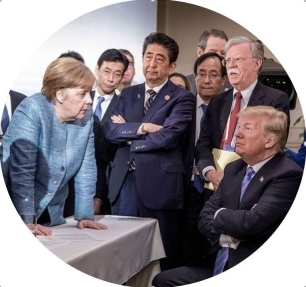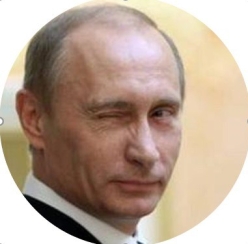 What are US experts’ and officials’ views on the increasingly conflictive energy and geostrategic relations between Russia, Germany, Poland and Ukraine?
What are US experts’ and officials’ views on the increasingly conflictive energy and geostrategic relations between Russia, Germany, Poland and Ukraine?
Greetings. I’m in Washington as a “Title VIII” fellow of the Kennan Institute in the Woodrow Wilson Center, interviewing people in think tanks and government (legislative and executive) on these topics. I’ll also give a public talk on this at Wilson on 12 June, at 2 PM (more info soon). 
I’m interested to hear anything readers think should be asked and of whom. Don’t hesitate to write me at twod(at)umich.edu or my (temp) Wilson email: thomas.odonnell(at) wilsoncenter.org.
A central issue: why is Germany so adamantly for Nordstream 2 despite the negative security consequences for Ukraine and despite the tremendous hit this project is causing to German soft-power not only with Poland, but with most Central and Eastern European (CEE) and Nordic states? (Here’s my own analysis.) How do US experts see this?
Meanwhile, the Nordstream 2 consortia started laying pipe in the Baltic Sea without all necessary permits in hand and without all the legal issues settled, aiming to make the project a fait accompli. However, completion of Nordstream 2 pipeline is now stalled, for perhaps one-to-two years, due to the efforts of Central and Eastern European, Nordic and other states opposed to this high-profile joint German-Russian project. In the process, German and Russian relations with opponent states have become increasingly strained, and in some ways between Moscow and Berlin as well.
Will the US Congress sanction companies building the project? But why put sanctions while the project is already stalled?
What are the Trump administration’s intentions? Why does this administration, unlike any previous one, act so narrowly commercial in promoting US LNG in a way that feeds into the claims of both Russian and German project advocates that the US has always only cared about its own nationalist energy-business interests, and that US alarm about the security of Ukraine is only a pretext to replace Russian gas sales with its own?
So, has Germany really agreed, in “deference” to Trump, to import sufficient LNG to offset continued German/EU Russian-gas dependence? (Here’s my analysis on this.)
Other top interview issues include:
- Poland’s move to escape Russian gas dependence with LNG imports, building the “Baltic Pipe” gas pipeline from Norway to Poland, and connecting its pipeline infrastructure to Slovenia and other CEE states. A new US bill promises to help finance this,
- The real danger of a European gas crisis when the Ukrainian transit contract with Gazprom runs out in January
- How much more dependent will Germany and its neighbors become on Russian Gas imports as its nuclear plants all close by 2020, its coal plants start to close, and if its renewable electricity output expansion continues to lag, while its domestic energy prices continue to climb?
I’ll generally give the names of interviewees, but not who said what – rather I’ll summarize the main points of view I find (as seen here, after my 2015 DC interviews) – unless anyone specifically agrees to be quoted. Read on for the issues I proposed to investigate:
Proposal (Accepted): Kennan Institute Title VIII Short-Term Grant
Dr. Thomas W. O’Donnell, PhD
17 September 2018
Email: twod@umich.edu
Blog URL: GlobalBarrel.com
Professional/Academic URL: TomOD.com
A.
Project Title:
Washington viewpoints on energy and geostrategic relations between Russia, Ukraine, Poland & Germany
B. Description
Proposed interviews In recent years, Russia’s use of its natural gas exports for geopolitical ends has been a source of tension and crises for Ukraine and the Visegrád Four’s relations with both Russia and Germany, as well as between Russia and Germany. In all these matters, the USA continues to play a pivotal role.
I propose to conduct in-depth interviews during a month’s residence at the Wilson Center’s Kennan Institute with key Washington experts and officials, soliciting their candid viewpoints on energy and geostrategic relations between and among these states, and the intentions of the Trump-administration and Congress. Given the unprecedented personnel turnover in DC and uncertainties in Europe as to US intentions, it is imperative for my credibility to both update discussions with my Washington contacts and initiate new contacts.
Over the past seven-years in Berlin, I have written, taught and advised on Russian energy policies and geostrategy and the responses of Ukraine, the V4 (esp. Poland), the EU (esp. Germany) and USA. This work is reflected in my CV [link], Publications List [link] (see also Appendices); Syllabi [link] and Bio [link]
Previous Washington interviews In Spring 2015; I conducted a similar series of interviews during the Obama administration, as resident fellow of the American Institute of Contemporary German Studies at the John Hopkins University (AICGS) and the German Academic Exchange Service (DAAD), with additional Foreign Office funding. That report,[1] [link] focusing on US expert viewpoints on German and EU policy to Russia, Ukraine and Eastern Europe, was read with interest by European experts and officials, and significantly extended my contacts and sources there.
At Kennan, I propose to interview experts in the Departments of State (Bureau of Energy Resources) and Energy (Office of International Affairs), in Congress (present/recent senior staff) and at The Center for the Study of International Security (CSIS), Atlantic Council, Brookings Institution and Wilson Center. Appendix D. gives a provisional list of interviewees.
Topics of interviews Especially since Russia’s annexation of Crimea and its intervention in eastern Ukraine, a welter of complex multilateral energy crises and maneuvers, drawing in also the EU and USA, have ensued. Several topics I would raise in interviews include:
- USA and EU sanctions on Russian energy, oligarchs, finance, etc.
- German-Russian partnership on the Nord Stream 2 (NS2) pipeline and
- Opposition by Ukraine and V4/Poland
- German disapproval of Poland’s “siding with” the USA v. Russia/Germany
- US administration and congressional threats to block NS2 with sanctions
- Putin’s refusal to negotiate a new Ukraine gas-transit contract unless Germany and Ukraine ignore a Stockholm arbitration ruling that Gazprom must compensate Naftogaz
- Chancellor Merkel’s threat (April) to cancel NS2 without this transit contract
- The failure (July) of Merkel’s envoy, Altmaier, to resolve this among Russia, Ukraine, Poland, ,
- Subsequent ongoing “tripartite” crisis negotiations hosted by the E.C.
- Status of reform of Ukraine’s gas sector
- EU buildup of pipeline-inter-connections and liberal markets in East and Central Europe
- Poland’s embrace of LNG v. Gazprom pipeline gas
- Trump administration insistence Europe purchase US LNG to counter Russian gas
- Controversies between Germany and Poland over coal and renewable policies
- And etc.
The analysis and policy report would:
- Characterize US understandings of energy-and-geostrategic-policy objectives of Russia, Ukraine, Poland and Germany, and Trump administration objectives
- Presents policy recommendations for especially Ukrainian and Polish experts/officials, of interest also to other-V4, US, German, EU and Russian actors.
Audience and follow up I would circulate the report to experts and officials, both my own contacts and beyond, in Europe and USA. Were it possible for Kennan to publish it in some form, this would lend it considerable additional weight and wider circulation.
Depending on interest, I would give talk(s)/consultations while at Kennan, or after (universities, institutes, government) and upon return to Europe. I would seek additional funding elsewhere to further this.
I am very interested in conducting a series of further interviews in Kiev, Warsaw, Moscow and Berlin/Brussels, as the framework for a book.
My expertise, work and affiliations I have been resident in Berlin for almost seven years, and teach at the Hertie School of Governance, Masters of International Affairs Program[2] and at Freie Universität, European Studies Program.[3]
I have established a reputation as an expert on European/USA/Russian “energy and international affairs,” and developed contacts in the energy, diplomatic and/or policy-institute sectors of especially Germany, but also Russia, Ukraine, and Poland, while striving to maintain my decades-long connections in Washington and New York of importance to my European work.
(Personal data and proposed interviewees names removed in public document. T.O’D)
Appendix B. Curriculum Vita
Appendix C: Recent Publications List (with links)
[1] “US energy experts’ viewpoints on German and EU energy policies” https://tomodonnelldotnet.files.wordpress.com/2015/07/odonnell-final-toc_03jul15.pdf DAAD/AICGS Fellow Report June 2015,
[2] Courses at Hertie School of Governance: “Geopolitics of global oil and gas markets” (URL: http://www.umich.edu/~twod/hertie_f2018/) in fall semesters, and a new directed-research course is expected for spring semesters.
[3] Course at FU-BEST: “Energizing Europe: Fossil and renewable transitions,” (URL: http://www.umich.edu/~twod/fu_f2018/) analyzing historical European energy transitions in comparison and contrast to today’s German Energiewende transition program.

Pingback: Media Roundup for June 2019 | The Instinctive Path
Pingback: Nord Stream 2: Berlin-Washington Mutual Intransigence Shows Transatlantic Divide on Russia – AICGS